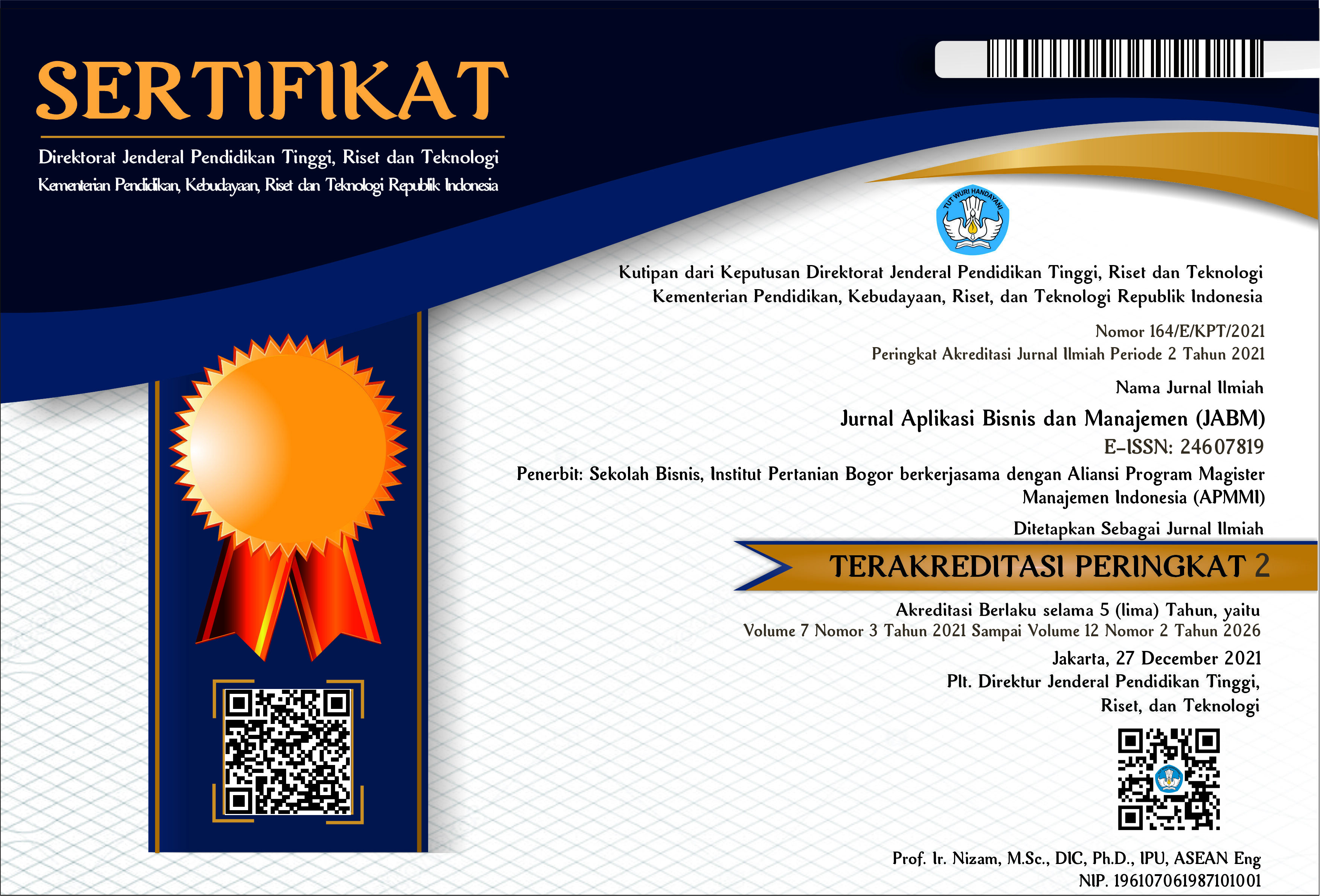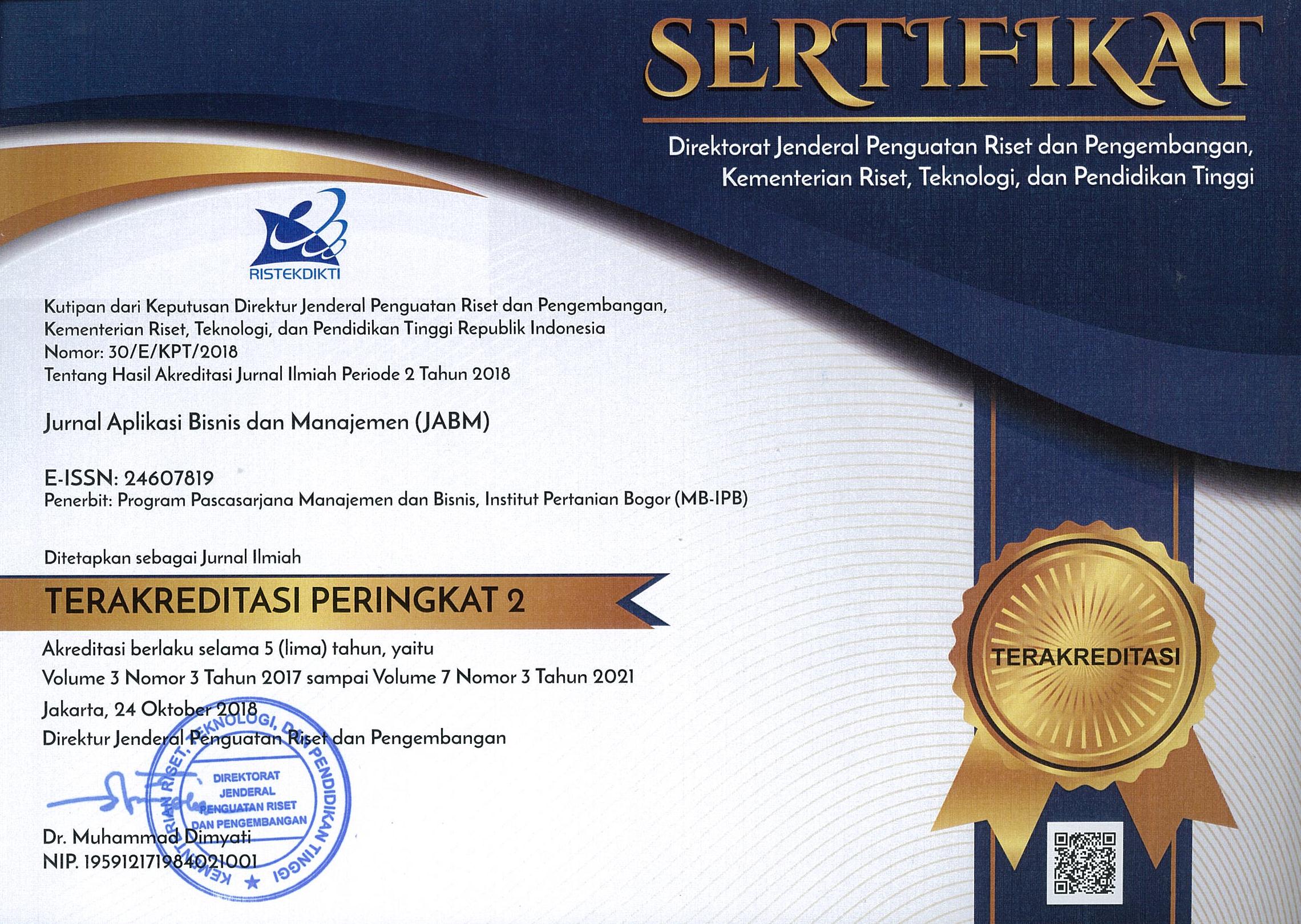The Influence of Personal Norms and Tax Compliance Intentions on The Tax Compliance Behavior of MSME Actors
Abstract
Background: MSMEs dominate the Indonesian economy. The growth of MSMEs shows that the number of MSMEs is quite large and continues to increase every year, thus indicating that MSMEs may be able to generate tax revenue. Semarang City is no exception. However, the problem is that MSMEs still view taxes as a burden that must be minimized and there is a lack of supervision from the tax authorities.
Purpose: The aim of the research is to determine the influence of personal norms and tax compliance intentions on tax compliance behavior in MSMEs for processed agricultural products in Semarang City.
Design/methodology/approach: The researcher used TPB. The idea that social and moral norms originate from subjective norms is examined in this study. Social norms focus more on providing social expectations and often aim to maintain harmony in a group or society, originate from society or social groups, and are often taught or enforced through socialization, social supervision, and social sanctions. Moral norms focus on behavior that is considered right or wrong from a moral or ethical perspective, are often related to a sense of personal responsibility or justice, originate from internal values, ethics, religion, or philosophy believed by the individual, and can vary from one individual to another, although they are often also influenced by certain religious or philosophical teachings. Three variables personal norms, intentions, and behavior, were used in this study. The questionnaires were given to UMKM taxpayers for processed agricultural products in Semarang City, totaling 120 respondents. PLS-SEM was used for the analysis.
Findings/Result: The first hypothesis is that personal norms have an impact on intentions. The second hypothesis is accepted which shows that tax compliance intentions have a positive and significant influence on tax compliance behavior. The Influence of Personal Norms on Intention where the statistical value for the personal norm and intention variables are respectively, the P value is 0.000 < 0.050 and the T statistic value is 7.706 > 1.96 so that the hypothesis is accepted. The Influence of Intention on Behavior, where the P value is 0.002 < 0.050 and the T statistic value is 3.117 > 1.96 so that the hypothesis is accepted. The Influence of Personal Norms on Behavior, where the P value is 0.000 < 0.050 and the T statistic value is 4.010 > 1.96 so that the third hypothesis - namely, that personal norms have a major impact on behavior is accepted. The Influence of Intention on Behavior where the P value is 0.002 < 0.050 and the T statistic value is 3.117 > 1.96 so that the hypothesis of intention has a major impact on behavior is accepted by the test.
Conclusion: The behavior is very positively influenced by personal norms and the intention to comply with taxes in MSMEs for processed agricultural products in the city of Semarang. The implications are: The Importance of Tax Education and Counseling, The Role of Moral and Ethical Values in Tax Compliance, The Influence of the Social Environment, The Need to Improve the Perception of Ease in Paying Taxes.
Originality/value (State of the art): Originality/value of this research is that this research highlights the importance of education and counseling about taxes for MSMEs, as well as the need for policies that support and facilitate the taxation process for this sector.
Keywords: tax compliance, agricultural products, MSMEs, personnel norms, social norms







